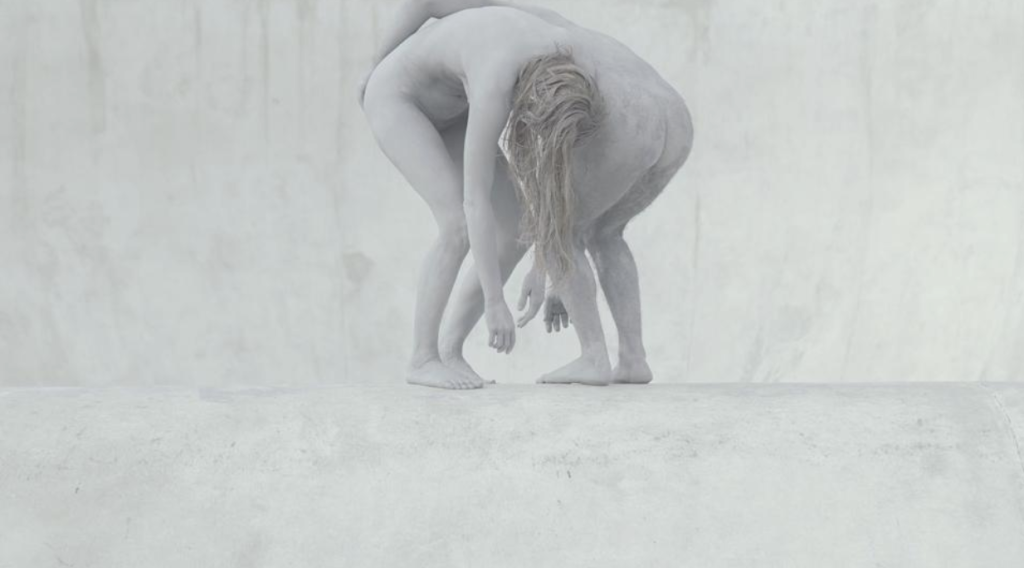Forschung & Verlangen
Readings, Talks, Performances

Haus am Waldsee
Argentinische Allee 30
14163 Berlin
Jahrestreffen der Gesellschaft für künstlerische Forschung in Deutschland (gkfd)
Wie hält es die künstlerische Forschung mit der Lust? Gibt es ein erotisches Wissen der Künste oder widersprechen sich Erregung und Erforschung?
Beim diesjährigen Symposion der gkfd folgen wir der psychoanalytischen Einsicht, dass der Forschungstrieb im Grunde libidinös ist. Dies trifft sich mit Überlegungen zu Liebe und Begehren in der Philosophie. Schon bei Platon findet sich die Idee, dass das Denken vom Erotischen getragen ist. Damit sind sowohl die Triebkräfte des Willens zum Wissen als auch der Modus des Denkens selbst gemeint. Dieser erotische oder liebende im Unterschied zum kritischen, befragenden oder verneinenden Modus rückt in letzter Zeit, vor allem in queerfeministischen und dekolonialen Wissenstheorien, wieder verstärkt in den Blick. Wenn man, wie Eve Kosofsky Sedgwick, die sogenannten Epistemologien der Feindschaft, also die von Ängsten und Paranoia getriebenen kritischen Wissensformen, um Epistemologien der Zuneignung ergänzen will, werden auch die Fragen nach den Erotiken des Wissens aktualisiert. Wobei man gerade für die heutigen Theorien des verkörperten Wissens, die Affekt und Vernunft nicht spalten wollen, nicht nur den Reiz, sondern auch die tendentiell unbändigen Dynamiken des Verlangens berücksichtigen muss. Kann man zwischen aneignenden, bemächtigenden und empfangenden oder empfindsam zartfühlenden Erotiken des Wissens sauber trennen? Gibt es in der künstlerischen Forschung etwas Vergleichbares wie die „Lust am Text“ von der Roland Barthes schreibt, sie hätte zwei Gesichter: die Lust sich wiederzufinden und die Wollust sich zu verlieren? Und wie verhält sich dies zu feministischen Erotiken, wenn man wie Hélène Cixous in das fleischliche Wissen die Momente einer desorganisierenden Libido einbezieht?
Programm
Lesung
Logan February: Gold Found by the Artists
Panel
Nadine Hartmann: Über Liebe, (Nicht)Wissen und Weiblichkeit in der mystischen Praxis
Murat Adash: Camouflage und die Choreografie von Alterität
Anna Gien: Die Schriftsteller:in als antagonistisches, fiktionales Objekt
Performance
Discoteca Flaming Star: Fragments & Fog
Moderiert und konzipiert von Kathrin Busch, Karina Nimmerfall und Mathias Zeiske.
**
Annual meeting of the Society for Artistic Research in Germany (gkfd)
Research & Desire
Readings, talks, performances
June 1, 2024, 18h
How does artistic research deal with desire? Is there an erotic knowledge of the arts or do arousal and research contradict each other?
At this year’s gkfd symposium, we follow the psychoanalytical insight that the research drive is essentially libidinal. This coincides with reflections on love and desire in philosophy. As early as Plato, we find the idea that thinking is driven by the erotic. It also refers to the driving forces of the will to knowledge and the mode of thinking itself. The erotic or loving mode – as opposed to the critical, questioning or negating mode – has recently come back into focus, especially in queer-feminist and decolonial theories of knowledge. If, like for Eve Kosofsky Sedgwick, the so-called epistemologies of enmity – i.e. the critical forms of knowledge driven by fears and paranoia – are to be supplemented by epistemologies of affection, actualized questions about the erotics of knowledge arise. Today’s theories of embodied knowledge do not create divisions between affect and reason. Rather they take into account the stimulus as well as the tendentially irrepressible dynamics of desire. Is it possible to make a clear distinction between appropriative, empowering, and receptive or sensitively tender eroticisms of knowledge? Is there anything comparable in artistic research to the “The Pleasure of the Text”, which Roland Barthes writes has two faces: the desire to find oneself again and the desire to lose oneself? And how does this relate to feminist erotics if, like for Hélène Cixous, the moments of a disorganizing libido are included in carnal knowledge?
Reading
Logan February: Gold Found by the Artists
Panel
Nadine Hartmann: On love, (non)knowledge and femininity in mystical practice
Murat Adash: Camouflage and the choreography of alterity
Anna Gien: The writer as an antagonistic, fictional object
Performance
Discoteca Flaming Star: Fragments & Fog
Moderated and conceived by Kathrin Busch, Karina Nimmerfall and Mathias Zeiske
Bild/Image: Murat Adash: Correspondance (Contact). Courtesy: Utopiana, Geneva